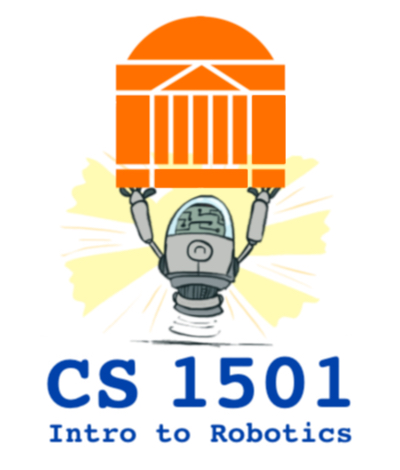Week 1: Introduction to Robotics [slides]
- What is a Robot?
- Types of Robots
- A Brief History of Robotics
- Core Concepts of Autonomy
- See, Think, Act… AKA Perception, Planning, Control
Week 2: Sensors [slides]
- Types of Sensors
- Camera
- LiDAR
- Radar
- Ultrasonic
- GPS
- IMU
- Tradeoffs
- Sensor Fusion
Week 3: Mapping [slides]
- What are Maps? Why Maps?
- Types of Maps
- Occupancy Grid Mapping
- Reference Frames and Representations
- HD Maps and Map Building
- Challenges of mapping the real world
- Lyft Level5 Case Study
- Mapping Principles and Goals
- Layered Mapping
- Storage and Retrieval, geometric considerations
- Sneak peek into localization…
Week 4: Localization I [slides]
- What is Localization?
- Motivation and Definitions
- How to Represent Localization
- Pose and Degrees of Freedom
- Challenges of Localization
- Dead Reckoning
- Probabilistic Map-based Localization
- Histogram Filter
- Predict-Update Cycle
Week 5: Localization II [slides]
- Histogram Filter Activity
- Landmark-based Mapping for Localization Algorithms
- Particle Filter (MCL)
- Kalman Filter (briefly)
- Summary of Localization Algorithms
Week 6: SLAM, Motion Planning I [slides]
- SLAM Motivation
- Graph SLAM
- Fast SLAM
- Motion Planning Motivation
- General AI Search Problem
- Cost Functions
- Grassfire Algorithm
Week 7: Motion Planning II [slides]
- Recap of Grassfire Algorithm
- Intro to Graphs
- Depth-First Search (DFS)
- Breadth-First Search (BFS)
- Dijkstra’s Algorithm
Week 8: Motion Planning III [slides]
- Motivation for Search Heuristics
- Greedy Heuristic Algorithm
- A* Algorithm
- Comparing Graph Search Algorithms
- Artificial Potential Fields
- Gradient Descent and Local Minima
Week 9: Motion Control [slides]
- Motivation for Control
- Open-loop Control
- Closed-loop (Feedback) Control
- Control Theory
- Objectives and Building Blocks
- Control Signal
- Example: Cruise Control
- Bang-Bang Controller
- P-Controller
- PID Controller
- Parameter Optimization (Tuning)
Week 10: Motion Control II, Perception [slides]
- Recap of Motion Control and PID
- What do the P, I and D terms mean?… Examples
- PID coding exercise
- What is Perception?
- Why Perception?
- Basics of Computer Vision
Week 11: What Next? [slides]
- Highlights of Important Topics
- Exciting Real-World Applications
- Self-driving Cars
- Big Tech Companies
- Automakers
- Tech Startups (Vertical + Horizontal)
- Self-driving Trucks
- Delivery Robots
- Aerial Robots
- Where is all the innovation happening?
- What does the future hold?
- What more to learn?
- Programming Languages
- Frameworks and Tools
- How to Learn
Week 12: Guest Lecture – Prof Nicola Bezzo, UVa Autonomous Mobile Robots Lab
Week 13: Guest Lecture – Michael Fleming, CEO Torc Robotics
Other Topics (not covered)
- Software Engineering for Robotics
- Intro to ROS
- Relevant Languages, Libraries, and Packages
- Simulators
- Intro to Matlab
- Safety and Ethics
- Designing Software for Safety
- Human-Robot interaction
- Trolley Problems
- Liability concerns
- AI Governance
- Some Case Studies…
- Autonomy Ecosystem
- Autonomy Businesses and Labs
- Survey of the Autonomous Vehicle industry - challenges, opportunities, leaders, business models
- Future of transportation
- Role of Government and Standardization
- Career opportunities
- Drones and Unmanned Aerial Vehicles
- Robot Kinematics and Dynamics (note: This is a very math-heavy topic!)
- Swarm Robotics
- Challenges of Multi-Agent Systems
- Connected Autonomous Vehicles
- V2V and V2I (V2X)
- Communication protocols and infrastructure
